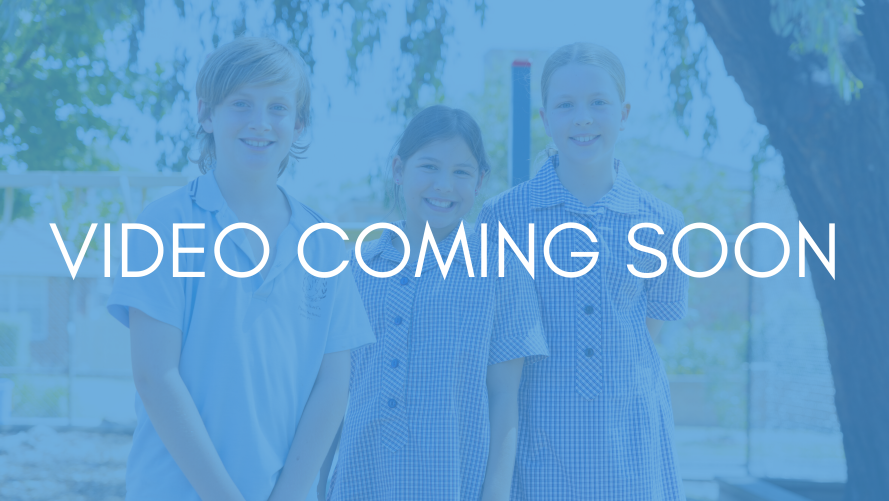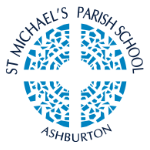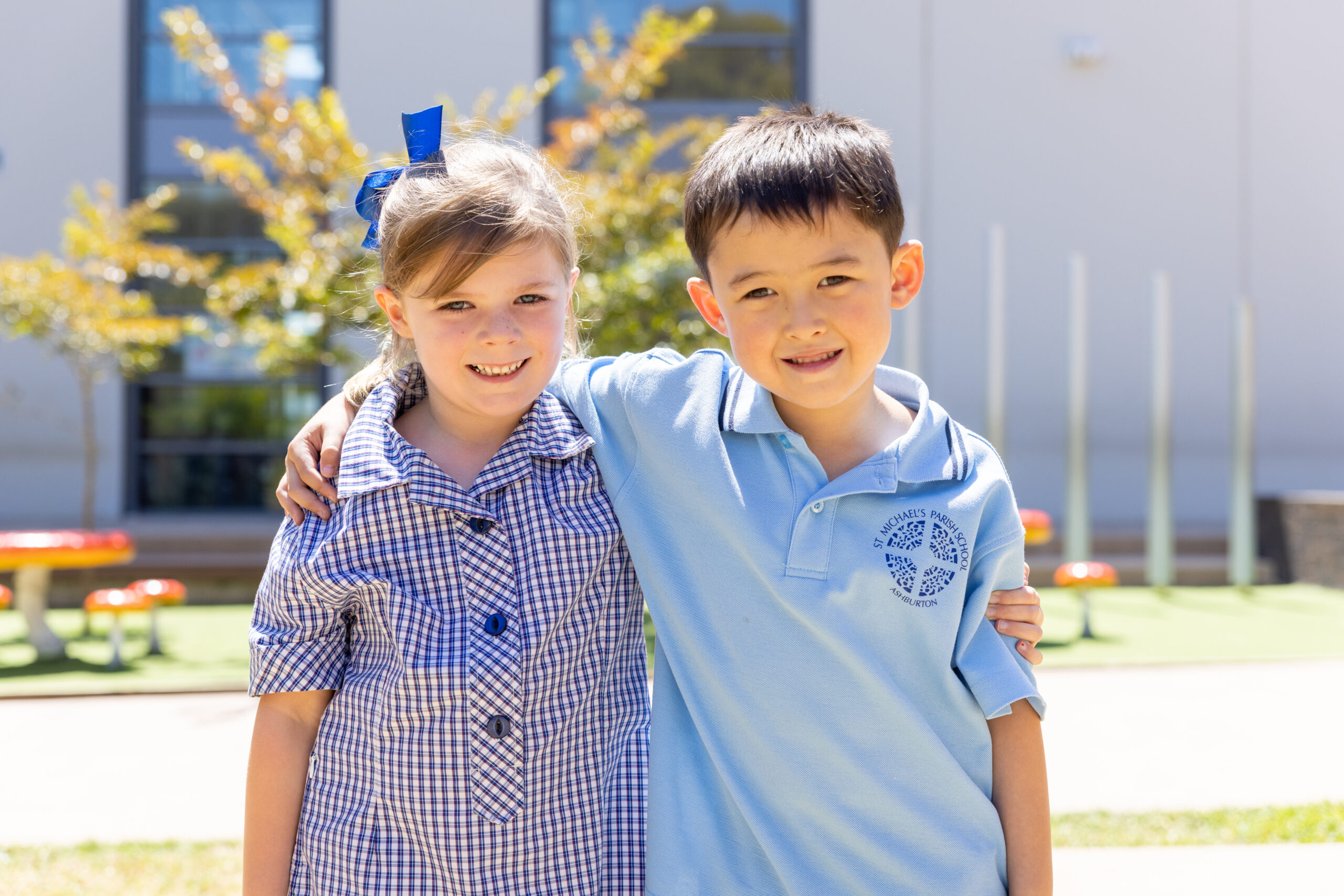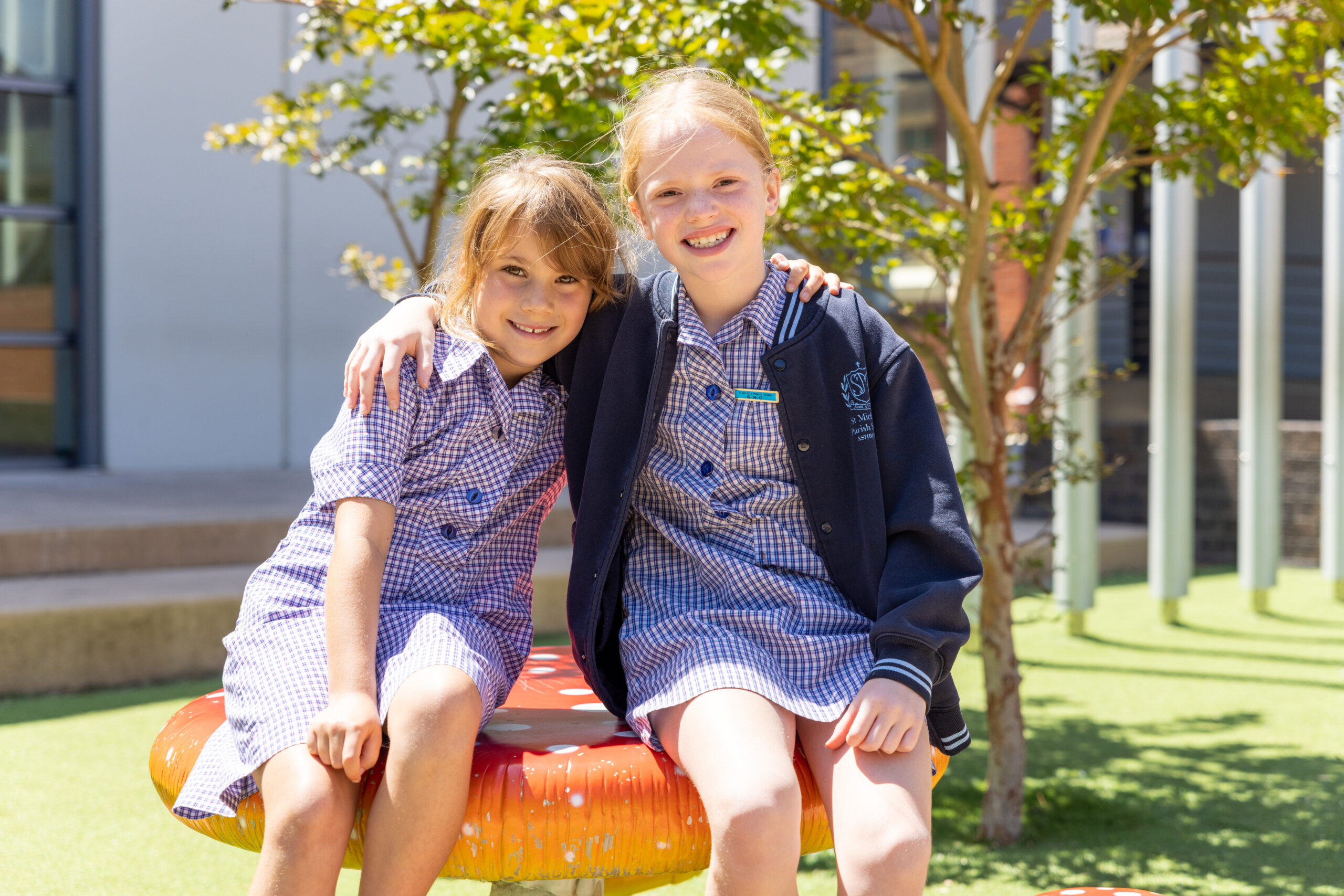Curriculum Opportunities
We pride ourselves on a wide range of curriculum opportunites for our studentsIt’s not the curriculum that we offer that sets us apart, it’s the manner in which it’s delivered
Any school can teach a curriculum. Amazing schools like ours are full of teachers actively and passionately exploring the possibilities of making their teaching practice more innovative, engaging and fun at every turn. This is the single ingredient that drives the most growth in our students.
The success we attain is not only evidenced by the assessment data – but it’s seen through the smiles and joy we see on our student’s faces as a concept is grasped. This is the indefinable element that drives us as teachers to produce and grow our own teaching skills year in, year out.
Religious Education
|
|
By cultivating a maturing of faith and the intellectual life through the modelling of good relationships, Catholic school students are prepared for living fruitfully in the world. ~ Melbourne Archdiocese of Catholic Schools Our main aim in Religious Education at St Michael’s School is to provide opportunities for our children to encounter Jesus through the Word, through interactions with others and in the social justice action they take themselves. The child is at the centre of all we do in our Religious Education program. Religious Education is a key learning area within our overall curriculum. The children participate in daily prayer, regular class liturgies and Masses to celebrate significant Church, liturgical and school occasions. In lessons, children undertake a learning of Catholic heritage and teachings through the examination of Sacred Texts, Beliefs, Church and Christian Life. The Religious Education program, Coming to Know, Worship and Love, is the primary resource used to plan this curriculum. St Michael’s School supports families to prepare their children for the reception of the Sacraments of Reconciliation, Eucharist and Confirmation. Students are taught about these Sacraments within their daily classes and parents are invited to support their learning. We hold steadfastly the need to help children become aware of the wider community and the needs of society. Teaching our children how we can bring the values of our Christian faith to daily life is fundamental to our approach. We encourage students to think beyond their own lives and seek ways to reach out and support those less fortunate in the world We invite prospective families to view the St Michael’s Parish website for details of masses, celebrations and to access Parish newsletters: https://www.stmichaelsashburton.org/
|
Student Wellbeing
 |
STUDENT WELLBEING Student wellbeing is at the centre of all we do at St Michael’s School. It is fundamental to learning and to students building resilience, which sets them up for their adulthood. Our learning focus is on the ‘whole child’ and all aspects this encompasses – academic, physical, emotional, spiritual. We provide a supportive school environment, nestled in the larger community of Ashburton, where we encourage students to connect with each other and their local and wider communities. Our strategies include: S.M.A.S.H. Expectations
Growth Mindset – As a school we focus on using growth mindset thinking – a way of viewing challenges and set backs in our lives and thinking about how we can turn this around.Carol Dweck (Professor of Psychology, Stanford University) explains that a “growth mindset is essential for success”. Through the use of Dweck’s work, we challenge our students to challenge their own negative thinking of themselves and their limitations. We focus on “the power of yet”; that we are all on a learning curve and that there is a path to the future.
|
Literacy
|
|
Our English program at St Michael’s School is structured such that the elements of Reading and Writing feature everyday in the classroom. Phonics and Spelling skills are regularly practised within the Reading hour. Oral Language is a focus throughout the English program. Aspects of the English curriculum are also taught within other learning areas, eg History, Geography, Science etc. Reading ~ Daily reading is essential for development in this area. Whilst daily reading occurs in the classroom, we also provide material for children to read at home each day. A variety of reading materials at all ability levels are available for students to borrow and this is recorded in the school diary. Writing ~ Opportunities to write are sought each day. Explicit teaching occurs within the writing hour and students are supported to develop skills in small focus groups and through writing tasks with their peers. Grammar and sentence structure are key focus areas during this time. Literacy intervention classes are provided to support students in developing their skills in small groups or sometimes with one-on-one support. The strategies of Reading Recovery and Levelled Literacy Intervention are used within Literacy Intervention. Assessment in the area of Literacy is an ongoing process. Students are provided with feedback on classroom spelling, reading and writing tasks. More formal assessments are performed throughout the year to ascertain progress, plan for future learning and to report to parents. |
Numeracy
|
St Michael’s Mathematics program is planned and developed to foster a love of Maths in our students and to give students opportunities to use Maths in real world contexts. The key strands within the Maths curriculum are a focus in our planning:
Our Maths program has a strong focus on developing numeracy skills – counting, number patterns, representing numbers. We examine a range of strategies for computation and for understanding the connections between the operations. As part of staff professional development and when planning for Maths learning, staff use the Key Ideas for Conceptual Development in Maths. This resource enables leaders and teachers to think deeply about the ideas that underpin mathematical concepts. In Mathematics lessons, students are encouraged to explore a variety of methods to solve mathematical problems and share their thinking and new learnings. In solving problems, students are challenged in their thinking and broadening perspectives as they develop into independent and active learners. Additionally this approach promotes growth mindset thinking, building perseverance and resilience, whilst fostering self motivation and creative thinking. |
Physical Education
|
The PE program at St Michael’s focuses on providing opportunities for challenge, personal growth, enjoyment and fitness. PE classes lay the foundation for the development of fundamental motor skills that will assist students to engage in physical activity in a healthy and active way. Knowledge, skills and behaviours developed in primary school form the basis for future learning, and contribute to students’ physical, social, emotional and cognitive growth and wellbeing.
|
Visual Arts
|
All students attend a weekly Visual Arts class where they are exposed to a variety of art techniques and processes. These classes aim to improve students’ skills and knowledge surrounding the arts including painting, drawing, sculpting, constructing and art appreciation. Every two years, St Michael’s holds a Student Art Exhibition. This is always an exciting and fun occasion involving the whole school community.
|
Science
 |
St Michael’s students engage in the specialist learning area of Science, which aids students in their curiosity about the biological, physical and technological world. Our students gain and apply knowledge, deepen their understanding and develop creative and critical thinking skills within a Catholic context. The Science specialist class provides opportunities for students to develop an understanding of important scientific concepts and processes, the practices used to develop scientific knowledge, the contribution of science to our culture and society, and its applications in our lives. These skills are also applied in the everyday classroom with an inquiry approach to learning.
|
Languages (Mandarin)
|
The Mandarin program at St Michael’s aims to foster, in students, an awareness and appreciation of the Mandarin language and Chinese culture. Learning a second language assists children in developing literacy skills through listening, speaking, reading and writing. It also contributes to the social cohesiveness across other cultures.
|
Inquiry
|
At St Michael’s, the journey of Inquiry learning begins with a question about what students would like to find out. Teachers plan the content using the humanities curriculum, such as history, geography, economics and follow a process based on Kath Murdoch’s model, which includes Tuning In, Finding out, Sorting out, Going Further, Making Conclusions and Taking Action. Inquiry based learning allows students to have a choice in what, how or with whom they learn. With an Inquiry based approach, the role of teachers is to help students understand the skills of research. Skills such as identifying reliable sources, writing information in their own words, digital literacy skills, excellent communication skills, understanding of copyright, editing and much more. The inquiry process allows students to have more say in their learning and therefore become more engaged. It fosters life-long learners. Through hands-on tasks, research based information gathering, learner choice, problem-solving solutions and real life learning, students improve their ability to find out things for themselves, rather than relying on adults to tell them. Students are given opportunities to build upon, test, share and reflect on their knowledge and learning. Inquiry learning is a powerful tool which enables students to learn for themselves, now and in the future.
|
Performing Arts
 |
The Performing Arts Specialist program at St Michael’s School incorporates the areas of Drama, Dance and Music. All these areas enable students to develop their creative and expressive capabilities as they learn about different practices, disciplines and traditions. Students are encouraged to make and present various performances, using dramatic skills, a variety of dance forms and music throughout their learning in this curriculum area.
Performing Arts lessons are held once weekly by a specialist teacher in this field from Year Prep through to Year 6. Every second year a whole school production is rehearsed and students present the many skills they have acquired in the form of a musical / role play. This is performed for families and the local community, giving students the opportunity to put the skills into practice on a large scale. In 2023, we presented the musical, An Aussie Adventure, at Crossway Baptist Auditorium in Burwood East.
The Hands-On one-on-one music program operates at St Michael’s School for parents who wish for their child to take individual instrumental lessons. Hands-On provides specialist music teachers who come to the school throughout the day and a variety of musical instruments are on offer.
|
Extra Curricular Activities
 |
Students at St Michael’s are encouraged to participate in a diverse range of activities and clubs during or outside regular school hours. During school hours:
Outside school hours:
|
Digital Technologies
|
St Michael’s students use a range of digital technologies to aid their learning in the classroom. Our goal in this area is to expose our students to a variety of processes and learning which can assist them to gain appropriate information, share knowledge and data, curate important knowledge, communicate ideas, visualise critical concepts and more. All students have access to a device, either an iPad in the Junior School or a Chromebook from Years Three to Six and all students have individual Google accounts, allowing them to email, create documents and slide presentations and have access to their own calendar. Research and information sharing form a large part of their overall learning. Students upload learning to the Seesaw App to share their learning with parents. Students from Years Three to Six also have access to Google Classroom where learning is uploaded for them to access and complete, with the support of their classroom teacher. Alongside these daily devices, students have the options to explore a range of technologies to enhance their learning. Those include the Black Box Theatre (A dedicated green screen room, audio capturing studio and theatre room), Spheros, Stikbots, Ozobots, Dashbots and Makey Makey. Other Digital Technologies accessed by students are:
CybersafetyCybersafety is the safe and responsible use of Information and Communication Technologies (ICT). Children are increasingly using technology in their day-to-day lives, therefore Cybersafety education and safety protocols are imperative. At St Michael’s we
St Michael’s School engages the services of Inform and Empower, a Digital Safety and Wellbeing organisation which supports schools in teaching the vital skills of cybersafety with both parents and students. Our students participate in a termly online incursion to learn about various areas within the cybersafety sphere. We source information through the Australian Communications and Media Authority (ACMA) and this includes student, staff and parent education. For further information visit the ACMA Cybersmart website: http://www.cybersmart.gov.au St Michael’s is also part of the eSmart initiative, which is supported by the Alannah and Madeline Foundation. eSmart is a framework approach to help improve cybersafety and wellbeing in Australian schools. For further information visit the eSmart website: http://www.amf.org.au |
Isn't it time we got to know each other?
Take our online VIDEO TOUR or book a SCHOOL TOUR!
Meet our principal, teachers, current students, parents, learn about our curriculum opportunities and tips for a smooth start to school.
![]()
Website, graphic design, videos & photography by Digital Schools | www.digitalschools.com.au | Copyright © Digital Schools. All Rights Reserved


